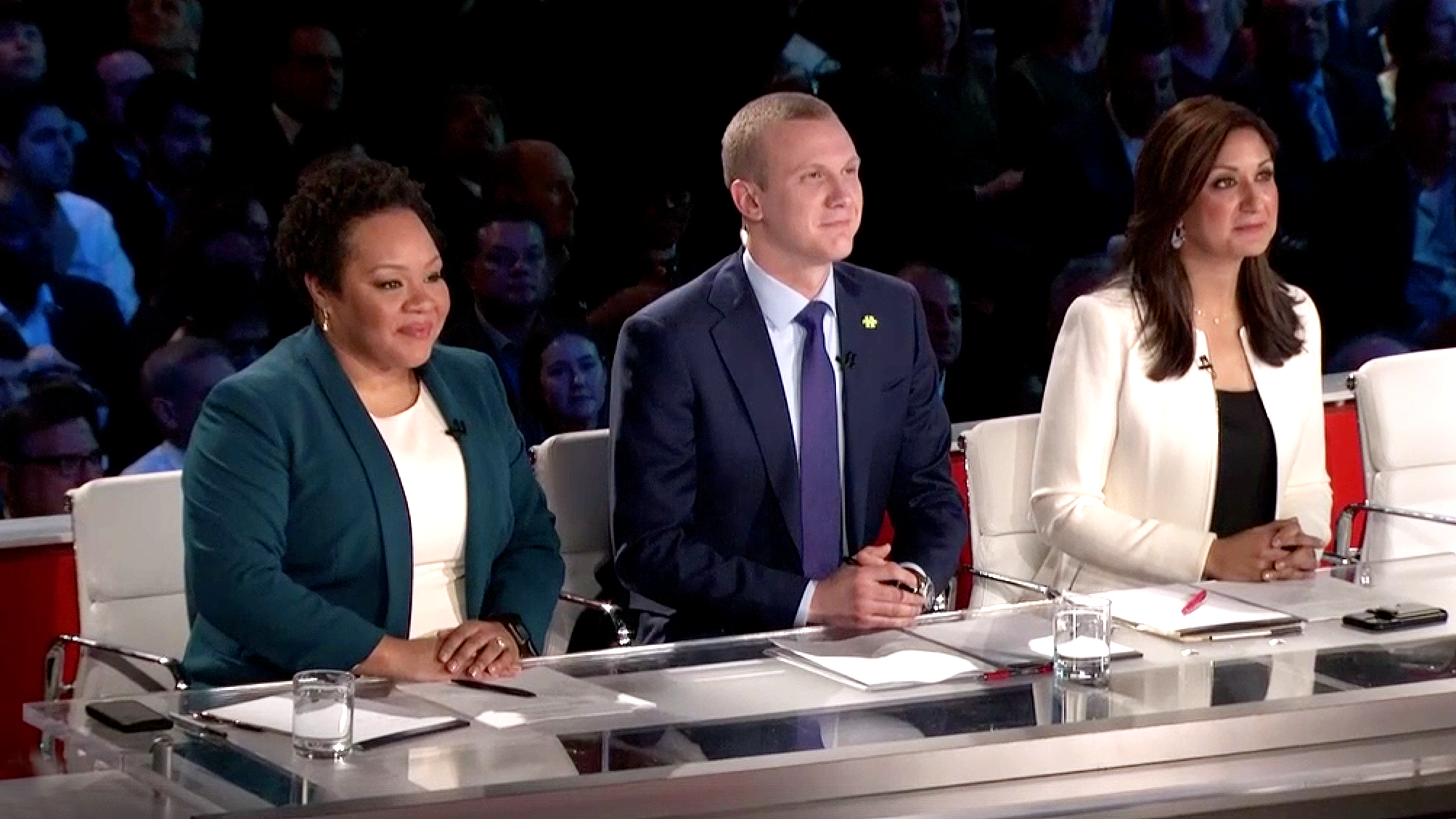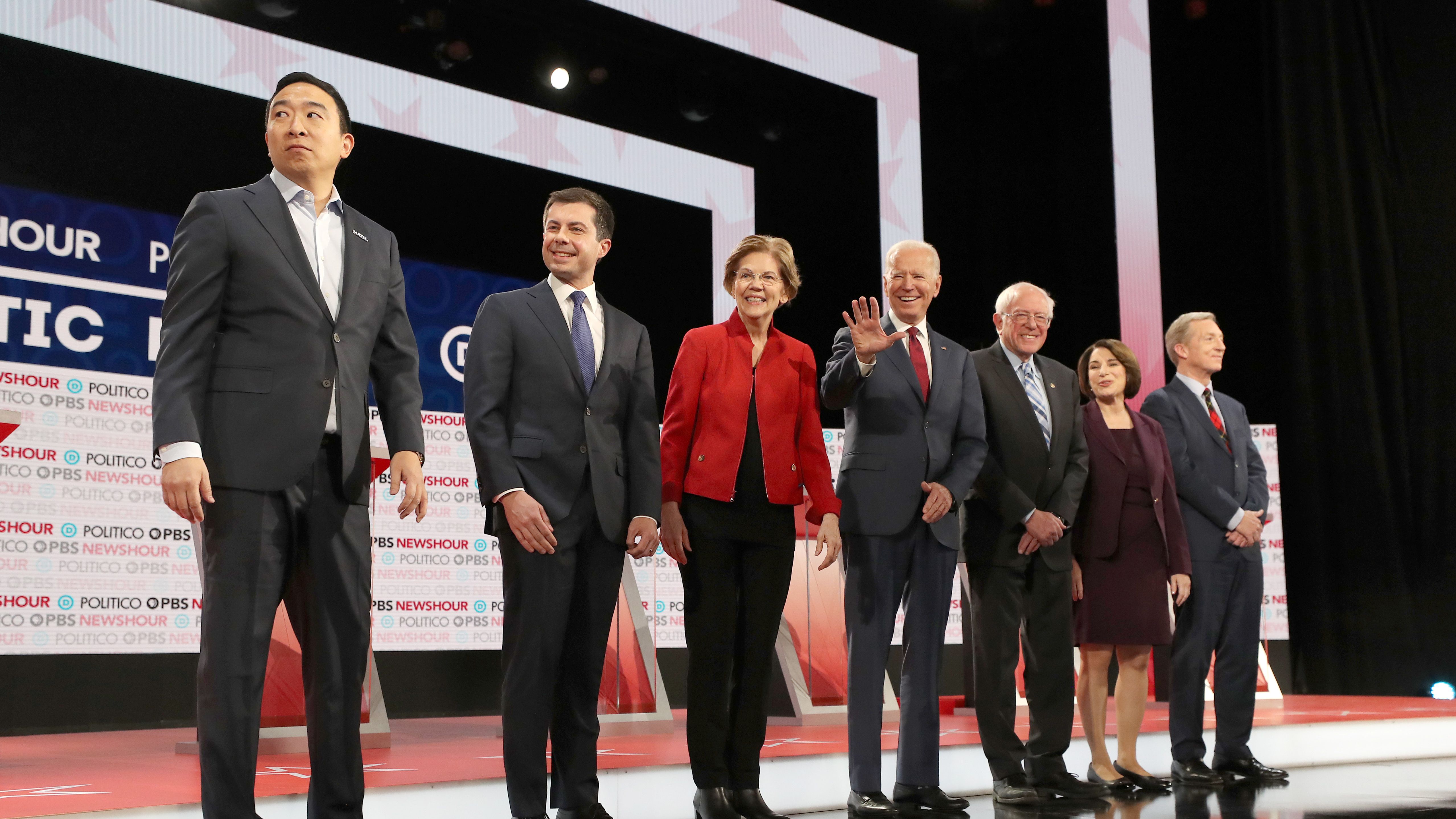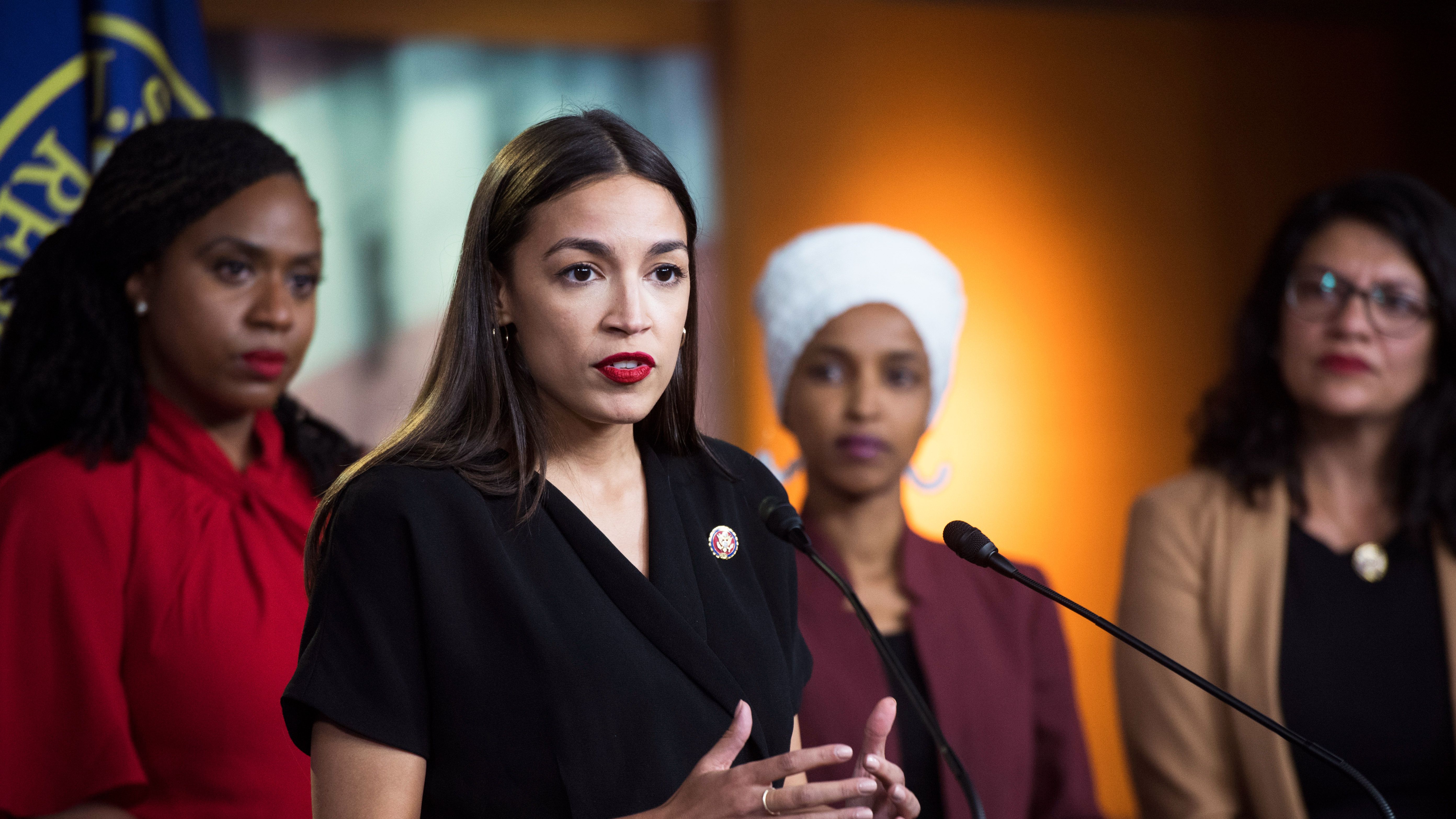Women of Color Ruled Last Night's Debate
Yes, I'm talking about the moderators.


Thursday night’s Democratic primary debate (the sixth one this cycle) gave us the smallest, and whitest, selection of candidates on the stage yet, with the four candidates who are polling best—Joe Biden, Bernie Sanders, Elizabeth Warren, and Pete Buttigieg—joined by Amy Klobuchar, Andrew Yang, and Tom Steyer.
It gave us a heated back and forth about wine caves (which was actually a debate over how campaigns get funded and how people get access to a president) and gave the men on stage a chance to plug their books (while the women asked for forgiveness for getting “really worked up” and being “blunt”).
Crucially, though, it gave us three moderators who asked serious, pointed, and well-researched questions, and who held the candidates’ feet to the fire when they didn’t answer them. All three of those moderators were women, and two were women of color. (Tim Alberta, of Politico, was also there.)
When you have moderators of color like @IAmAmnaNawaz and @Yamiche — the smart questions finally get asked up front and fast.December 20, 2019
Let’s start with PBS Newshour correspondent Amna Nawaz, who made history by becoming the first Muslim American journalist to moderate a presidential debate. Nawaz’s first question was just for Joe Biden, who has spent much of his campaign insisting that once Donald Trump is out of office, the Republican Party’s fever will break, and politics will return to business as usual without a reality-TV-star-turned-wannabe-king in the White House.
“Given everything that you have seen from current Republicans, what evidence is there that things will change?” Nawaz asked Biden. In response, Biden conceded that a return to normal wasn’t going to cut it.
“Normal's not enough,” he said. “Normal—in fact, we have to move beyond normal, whether it's health care, the environment, whatever it is.” But, he argued, without Trump in office to intimidate primary-vulnerable Republicans, it might be possible to “reach a consensus” with the GOP.
Later, Nawaz asked Bernie Sanders what he thought of the fact that Andrew Yang was the only candidate of color on stage—Cory Booker, Julian Castro, and Tulsi Gabbard did not qualify, and Kamala Harris dropped out at the start of the month. Given that the party “overwhelmingly relies on Black, Hispanic, and Asian voters, what message do you think this sends to voters of color?”

The sixth primary debate featured the least diverse slate of candidates thus far.
It looked, for a moment, like Sanders was going to sidestep the question and return to the previous topic, climate change.
Get exclusive access to fashion and beauty trends, hot-off-the-press celebrity news, and more.
“I will answer that question, but I wanted to get back to the issue of climate change for a moment, because I do believe this is the existential issue,” he said.
Nawaz wasn’t having it. “Senator, with all respect, this question is about race. Can you answer the question as it was asked?” Her interjection was met with wild applause from the crowd. To his credit, Sanders responded by noting that climate change takes the greatest toll on people of color, and called for “an economy that focuses on the needs of oppressed, exploited people, and that is the African-American community.”
He did not, however, answer the question about a Democratic party shored up by voters of color, in which candidates of color aren’t represented on the debate stage.
Yamiche Alcindor, Newshour’s White House correspondent, also brought her A game. She opened with a question about Israeli settlements in the West Bank, and followed with a pointed question for Amy Klobuchar: What would you say to white voters who fear becoming a racial minority?
Klobuchar’s response was, more or less, deal with it. She then pledged to implement national Automatic Voter Registration to ensure that as Americans of color become the majority, they don’t remain in the minority at the ballot box.
It's never not going to be cool seeing a >young< black woman moderate a presidential debate. Thank you, @Yamiche, for giving me, and so many other young black journalists struggling to find representation and mentors in Washington, real goals to work toward.December 20, 2019
Alcindor ended her night with a question about the disturbingly high rate of violence against transgender women, and especially against trans women of color, which prompted this promise from Elizabeth Warren:
I will go to the Rose Garden once every year to read the names of transgender women, of people of color, who have been killed in the past year. I will make sure that we read their names so that as a nation we are forced to address the particular vulnerability on homelessness. I will change the rules now that put people in prison based on their birth sex identification rather than their current identification. I will do everything I can to make sure that we are an America that leaves no one behind.
Judy Woodruff, a longtime anchor and managing editor of Newshour, held the evening together with the poise you’d expect from someone who’s been asking questions of powerful people for over four decades. But it was Nawaz and Alcindor who really shined, and who asked the toughest questions, many of them about topics that rarely get mentioned in these debates. The debate stage didn’t look much like America, but for once, the moderators’ panel did.
For more stories like this, including celebrity news, beauty and fashion advice, savvy political commentary, and fascinating features, sign up for the Marie Claire newsletter.
RELATED STORY

Chloe Angyal is a journalist who lives in Iowa; she is the former Deputy Opinion Editor at HuffPost and a former Senior Editor at Feministing. She has written about politics and popular culture for The New York Times, The Washington Post, The Atlantic, The Guardian, New York magazine, Reuters, and The New Republic. Angyal has a Ph.D. in Arts and Media from the University of New South Wales.
